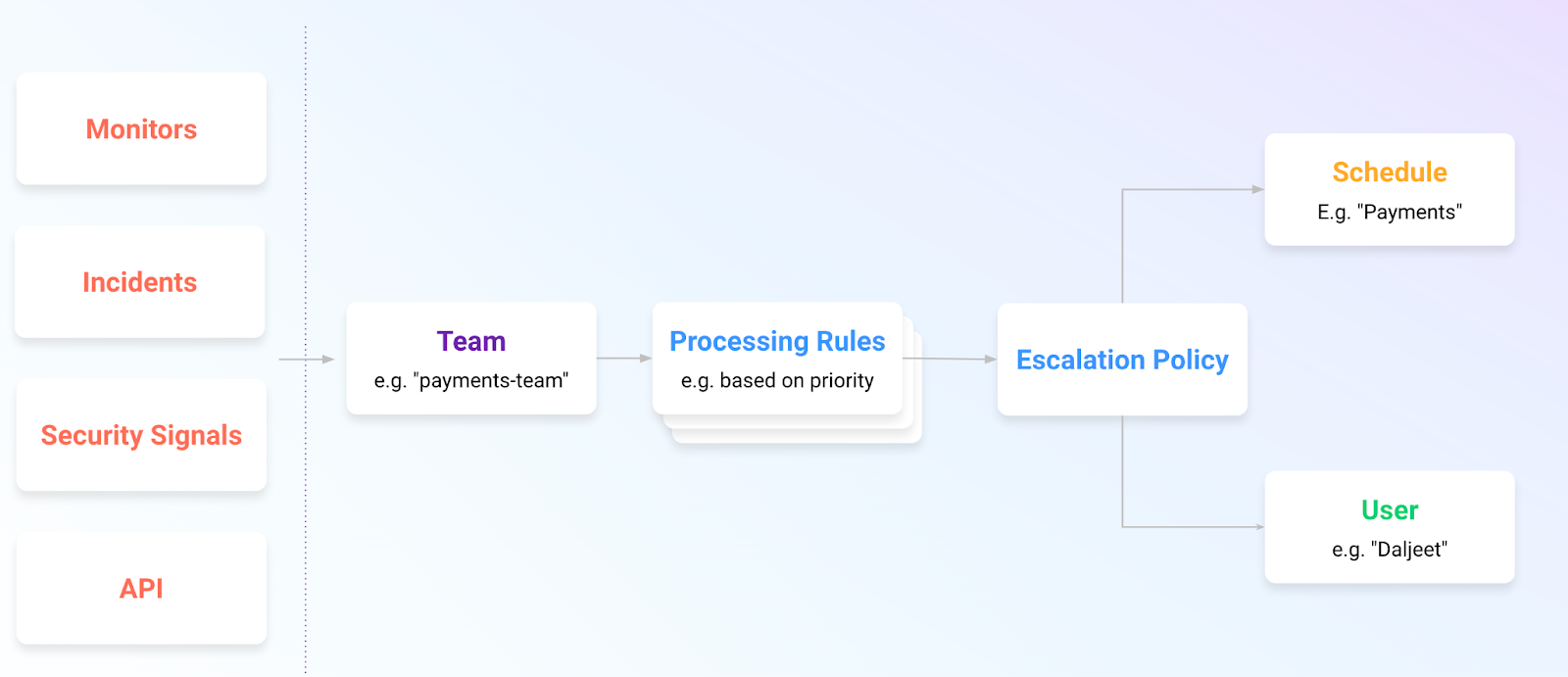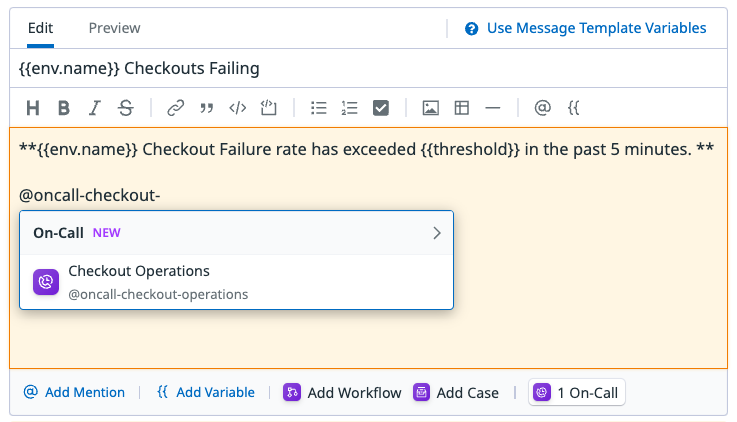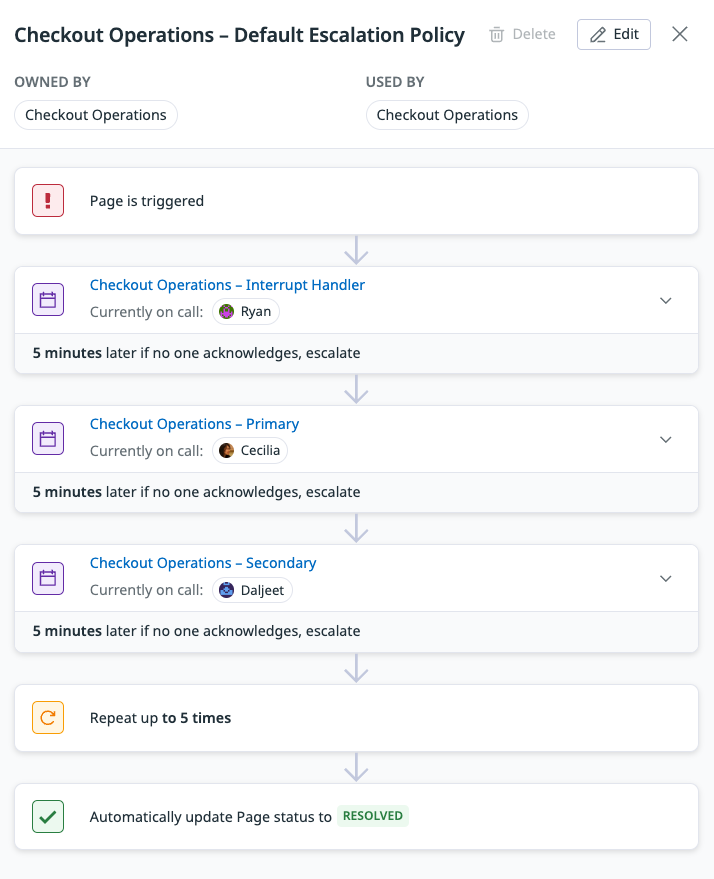- Essentials
- Getting Started
- Agent
- API
- APM Tracing
- Containers
- Dashboards
- Database Monitoring
- Datadog
- Datadog Site
- DevSecOps
- Incident Management
- Integrations
- Internal Developer Portal
- Logs
- Monitors
- Notebooks
- OpenTelemetry
- Profiler
- Search
- Session Replay
- Security
- Serverless for AWS Lambda
- Software Delivery
- Synthetic Monitoring and Testing
- Tags
- Workflow Automation
- Learning Center
- Support
- Glossary
- Standard Attributes
- Guides
- Agent
- Integrations
- Developers
- Authorization
- DogStatsD
- Custom Checks
- Integrations
- Build an Integration with Datadog
- Create an Agent-based Integration
- Create an API-based Integration
- Create a Log Pipeline
- Integration Assets Reference
- Build a Marketplace Offering
- Create an Integration Dashboard
- Create a Monitor Template
- Create a Cloud SIEM Detection Rule
- Install Agent Integration Developer Tool
- Service Checks
- IDE Plugins
- Community
- Guides
- OpenTelemetry
- Administrator's Guide
- API
- Partners
- Datadog Mobile App
- DDSQL Reference
- CoScreen
- CoTerm
- Remote Configuration
- Cloudcraft (Standalone)
- In The App
- Dashboards
- Notebooks
- DDSQL Editor
- Reference Tables
- Sheets
- Monitors and Alerting
- Service Level Objectives
- Metrics
- Watchdog
- Bits AI
- Internal Developer Portal
- Error Tracking
- Change Tracking
- Event Management
- Incident Response
- Actions & Remediations
- Infrastructure
- Cloudcraft
- Resource Catalog
- Universal Service Monitoring
- End User Device Monitoring
- Hosts
- Containers
- Processes
- Serverless
- Network Monitoring
- Storage Management
- Cloud Cost
- Application Performance
- APM
- Continuous Profiler
- Database Monitoring
- Agent Integration Overhead
- Setup Architectures
- Setting Up Postgres
- Setting Up MySQL
- Setting Up SQL Server
- Setting Up Oracle
- Setting Up Amazon DocumentDB
- Setting Up MongoDB
- Connecting DBM and Traces
- Data Collected
- Exploring Database Hosts
- Exploring Query Metrics
- Exploring Query Samples
- Exploring Database Schemas
- Exploring Recommendations
- Troubleshooting
- Guides
- Data Streams Monitoring
- Data Observability
- Digital Experience
- Real User Monitoring
- Synthetic Testing and Monitoring
- Continuous Testing
- Product Analytics
- Session Replay
- Software Delivery
- CI Visibility
- CD Visibility
- Deployment Gates
- Test Optimization
- Code Coverage
- PR Gates
- DORA Metrics
- Feature Flags
- Security
- Security Overview
- Cloud SIEM
- Code Security
- Cloud Security
- App and API Protection
- AI Guard
- Workload Protection
- Sensitive Data Scanner
- AI Observability
- Log Management
- Observability Pipelines
- Configuration
- Sources
- Processors
- Destinations
- Packs
- Akamai CDN
- Amazon CloudFront
- Amazon VPC Flow Logs
- AWS Application Load Balancer Logs
- AWS CloudTrail
- AWS Elastic Load Balancer Logs
- AWS Network Load Balancer Logs
- Cisco ASA
- Cloudflare
- F5
- Fastly
- Fortinet Firewall
- HAProxy Ingress
- Istio Proxy
- Juniper SRX Firewall Traffic Logs
- Netskope
- NGINX
- Okta
- Palo Alto Firewall
- Windows XML
- ZScaler ZIA DNS
- Zscaler ZIA Firewall
- Zscaler ZIA Tunnel
- Zscaler ZIA Web Logs
- Search Syntax
- Scaling and Performance
- Monitoring and Troubleshooting
- Guides and Resources
- Log Management
- CloudPrem
- Administration
On-Call
This product is not supported for your selected Datadog site. ().
Datadog On-Call integrates monitoring, paging, and incident response into one platform.
Concepts
- Pages represent something to get alerted for, such as a monitor, incident, or security signal. A Page can have a status of
Triggered,Acknowledged, orResolved. - Teams are groups configured within Datadog to handle specific types of Pages, based on expertise and operational roles.
- Routing rules allow Teams to finely adjust their reactions to specific types of incoming events. These rules can set a Page’s urgency level and route Pages to different escalation policies depending on the event’s metadata.
- Escalation policies determine how Pages are escalated within or across Teams.
- Schedules set timetables for when specific Team members are on-call to respond to Pages.
How it works
Teams are the central organizational unit of Datadog On-Call. When a notification is triggered in Datadog, a Page is sent to the designated On-Call Team.
Each Team owns escalation policies and schedules. Escalation policies define how a Page is sent to various schedules, such as Checkout Operations - Interrupt Handler, Primary, and Secondary in the following screenshot. Each Team can also configure routing rules to route Pages to different escalation policies.
A schedule defines specific times when Team members are assigned to respond to Pages. Schedules organize and manage the availability of Team members across different time zones and shifts.
Granular access control
Use granular access controls to limit the roles, teams, or users that can access On-Call resources. By default, access to On-Call schedules, escalation policies, and team routing rules is unrestricted.
Granular access controls are available for the following On-Call resources:
- Schedules: Control who can view, edit, and override schedules
- Escalation policies: Control who can view and edit escalation policies
- Team routing rules: Control who can view and edit team routing rules
Supported resources and permissions
| On-Call resource | Viewer | Overrider | Editor |
|---|---|---|---|
| Schedules | Can view schedules | Can view schedules and override shifts | Can view, edit schedules, and override shifts |
| Escalation policies | Can view escalation policies | - | Can view and edit escalation policies |
| Team routing rules | Can view team rules | - | Can view and edit team rules |
Restrict access to On-Call resources
To restrict access to an On-Call resource:
- Navigate to the specific On-Call resource (schedule, escalation policy, or team routing rules).
- Click Manage.
- Select Permissions from the dropdown menu.
- Click Restrict Access.
- Select one or more roles, teams, or users from the dropdown menu.
- Click Add.
- Select the level of access you want to associate with each of them from the dropdown menu next to their name:
- Viewer: Read-only access to view the resource
- Overrider (schedules only): Can view and create schedule overrides
- Editor: Full access to view and modify the resource
- Click Save.
Note: To maintain your edit access to the resource, Datadog requires you to include at least one role that you are a member of before saving.
Start using Datadog On-Call
To preserve incident history, Datadog On-Call does not support deletion of resources like Pages, escalation policies, or schedules. To test On-Call without affecting your production environment, create a trial organization as a sandbox.
To get started with On-Call, onboard an On-Call Team and ensure that all Team members configure their On-Call profile settings to receive notifications.
This section includes the following topics:
- Onboard a Team: Create a new On-Call Team, add an existing Datadog Team to On-Call, or import a team from PagerDuty.
Billing
On-Call is a seat-based SKU. To learn more about how On-Call is billed and how to manage seats within Datadog, visit our pricing page and the Incident Response billing documentation.
Further Reading
Additional helpful documentation, links, and articles:




